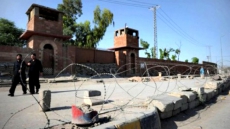In a major blow to the scientific community, the HIV virus that was once vanquished in the 'Mississippi baby' by administering aggressive anti-retroviral therapy before she was barely 30 hours old has rebounded.
The 'Mississippi baby' was born to an HIV-positive mother in 2010 who had not been treated with anti-retroviral drugs during her pregnancy.
Doctors began treating the child immediately after birth but the family stopped anti-retroviral therapy at 18 months.
She remained off the drugs for the next 27 months with no signs of the virus in her blood.
However, two months before her fourth birthday, paediatricians gave the 'Mississippi baby' bad news.
"Although we had high hopes that the child would remain HIV-free, this case provides a learning opportunity about how rapid, early treatment affects the body's response to HIV, especially in newborns, which eventually could lead to a cure," said R.J. Simonds, vice president of programme innovation and policy at the Elizabeth Glaser Pediatric AIDS Foundation (EGPAF).
The young girl will now face years, if not a lifetime, of anti-retroviral therapy.
Researchers are now scrambling to determine how this will affect clinical trials aiming to repeat the child's apparent cure.
Doctors do not know what caused the virus to rebound in the young girl.
There were no signs of trouble before lab results last week showed a drop in immune cells called CD4+ cells.
“It felt very much like a punch to the gut,” said Dr. Hannah B. Gay, a paediatric HIV specialist at the University of Mississippi Medical Center who treats the girl, when tests for HIV came back positive.
The sequence of the virus matched that taken from the girl's mother two years earlier.
It is also unclear where in her body the virus hid during those 27 months of negative HIV tests, Nature reported.
"The efforts will continue to help researchers understand how to control HIV and ultimately develop a cure," Simonds added.





